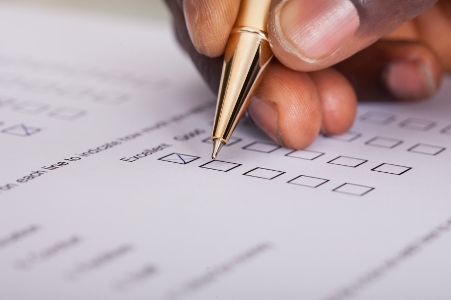Commercial invoices and billing paperwork must contain the proper information for U.S. Customs and Border Protection (CBP) officials so that those goods are stamped with a seal of approval and deemed admissible. Seems obvious, but many shipments are delayed because of paperwork errors. The quick exchange of documents and invoices with CBP officials helps expedite clearance of your imported goods into the United States. So you can get the information you need and get back to billing and invoicing (meaning your revenue), we’ll get right to these 7 tips importers need to know about billing and invoice creation.

Describe Importer Billing Items Clearly
Make sure you know exactly what’s being imported and label your imported goods clearly and properly. We mean exactly. CBP officials aren’t paid to guess and you’ll only slow down the process if you aren’t precise with your importer billing paperwork.
Give the Quantity
Measure twice, cut once. Placing the wrong quantity of imported goods on invoices is a red flag for a CBP official and again, slows down your import process. Do the math and double check your quantity number before the clearance process begins.
State the Value
This is where you state the value of your imports or the estimate value of those imports. Give the value both in U.S. dollars and the value in the correct foreign currency. If you need help converting the currency here’s a handy currency converter tool.

Where Is it From?
Don’t forget your roots. Label the address and origin country and also include the address and country where the import was purchased if it differs from the origin country.
Seller and Buyer Information
Both the name and the address of the business or the person buying the merchandise must be present on your invoice. If that name and address is different from the importer’s address, that information needs to be provided as well.
Location, Location, Location
Want your imports to head to the proper address? The U.S. address of the business or person the goods are being shipped to is important and must be included on the invoice. When you work with a CBP official, provide the importer mailing address and importer physical location address. The importer mailing address can also list a post office box as an address.

Your Presence is Required
Last but not least, you, the importer, or a licensed Customs Broker that you trust, must be present to hand over the invoice to the CBP official reviewing your goods for import clearance.
The importer billing and invoice creation process requires a lot of attention to make sure it’s handled properly. That’s why it’s best to work with a Customs Broker trained in electronic billing and invoicing.
AFC International will oversee the entire electronic billing and invoice creation process, making sure you stay compliant while your goods are approved for clearance quickly. AFC Customs Brokers are also trained to utilize electronic data interchange (EDI) to exchange documents and information quickly from computer to computer during the import process.
Call us at 800-274-2329 today or get a quote today to get started!


Leave a Reply
You must be logged in to post a comment.